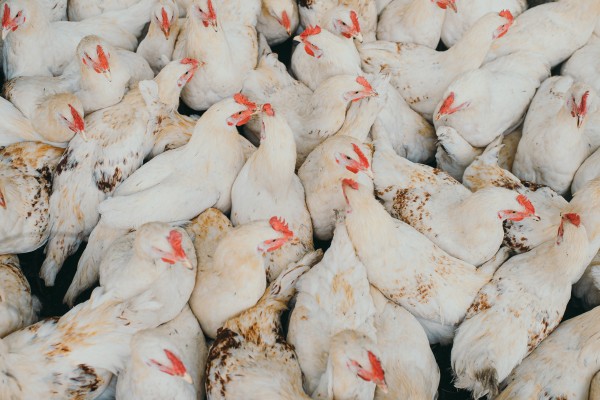On October 9, Alexey Ivanov, Director of the International BRICS Competition Law and Policy Centre, delivered a report on "Causes and Consequences of Price Volatility in Global Food Markets" at the 8th CUTS-CIRC Biennial Conference on Competition Regulation and Development in New Delhi (India). The conference was co-organized by the Competition Commission of India, the BRICS International Competition Law and Policy Centre, the CUTS International Centre, the CUTS-CIRC Institute for Regulation and Competition, as well as the Organization for Economic Cooperation and Development (OECD) and the European University Institute (EUI).
Opening the session themed "Food and Agriculture — Trade and Competition", the moderator of the event Tembinkosi Bonakele, Ex-Commissioner of the Competition Commission of South Africa, noted the scope of work on the food track done by the BRICS competition authorities. In 2017, with the input of experts from the BRICS Competition Centre, a report on global food value chains was released, which formed the basis of the book “Global Food Value Chains and Competition Law” (Cambridge University Press, 2022). Meanwhile, competition authorities in developed countries do not pay enough attention to the issue of food prices.
Earlier, Teresa Moreira, Head, Competition and Consumer Policy Branch, Division on International Trade and Commodities, UNCTAD, also emphasized the key role of the BRICS Competition Centre in exploring competition issues in the global food market — one of the most socially important sectors of the world economy today.
"It was colleagues from the BRICS Competition Centre who first raised the thorny issue of global food chains to the level of international antitrust discussion at UNCTAD in 2015 and since then have continued to pursue this topic in cooperation with key developing countries, which gives hope for more effective antitrust policies in global food markets, which are so much needed today,"
concluded Ms. Moreira.
In his report Alexey Ivanov touched upon the most important problems in the global food chain architecture. Thus, in the grain market, farmers as an element of the value chain are in the most vulnerable position, being under pressure from the established oligopoly of input suppliers and the oligopoly of global traders. Thus, all costs of market volatility are borne by farmers or consumers.
Key antitrust challenges for international grain trade also include information asymmetry and speculative pricing in exchange and OTC derivatives markets, export restrictions, multiple barriers to entry and logistical bottlenecks, etc. Ivanov suggested possible joint measures of antimonopoly response to these challenges by the BRICS countries in an enlarged structure. It should be recalled that Egypt, Iran, Saudi Arabia and Argentina — important players in the global food market — have recently joined BRICS.
Mahmoud Momtaz, Chairman of the Egyptian Competition Authority (ECA), said his agency monitors food prices, looking at the entire value chain, from seed and fertilizer to supermarket prices. Recently, the ECA has managed to uncover two cartels in the agricultural fertilizer market. "Sometimes the mark-ups on some products are as high as 80%. By solving problems at the bottlenecks in the chain, we consequently see a reduction in the price tag," he noted.
Most of the countries with the highest levels of annual food price inflation are located in the global South, said Dina Waked, Associate Professor, Sciences Po Paris’ Law School. In the face of growing instability, it is necessary to start building an "alternative market structure," she emphasized. This is crucial precisely for developing countries still living with the traditional "Chicago paradigm" of market analysis, enshrined in their law in the 1990s during the period of widespread antitrust regulation in the world.
Continuing the theme of distortions in the current global economic system, Sachin Kumar Sharma, Associate Professor, Centre for WTO Studies, India, raised the issue of unfair distribution of subsidies under the WTO Agreement on Agriculture, the model of which is formed in the interests of developed countries. He underscored the need to redress this imbalance and protect the interests of farmers in the global South. "We must ensure food security for the socially vulnerable. And if we are talking about competition, let us first of all create fair subsidy conditions for all."
Problems in global food value chains can also arise from the use of modern technology. Claudio Lombardi, Lecturer, School of Law, University of Aberdeen, elaborated on this point. In precision agriculture, concentration in data ownership could worsen over time given current trends. "This will lead to an imbalance in power distribution that seems likely to suggest that the sustainability objectives set by the law will only be reversed or prevented," the speaker warned.
The conference was attended by leading experts from the UN, OECD, antimonopoly authorities of BRICS, EAEU, Uzbekistan, Malaysia, Egypt, African regional associations COMESA and ECOWAS, as well as scientists and public figures from India, China, Hong Kong, France, Italy, Russia, Brazil and other countries — a total of 26 countries were represented.




